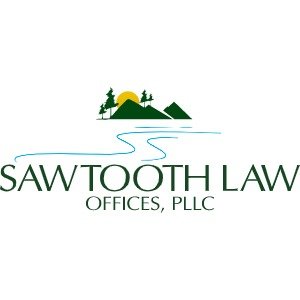Best Creditor Lawyers in Boise
Share your needs with us, get contacted by law firms.
Free. Takes 2 min.
List of the best lawyers in Boise, United States
About Creditor Law in Boise, United States
Creditor law in Boise, United States involves various federal and state regulations that protect both creditors and debtors during monetary transactions. This can range from establishing legal protocols for debt collection, the initiation of bankruptcy proceedings, and the enforcement of judgments. Creditors in Boise operate under the Fair Debt Collection Practices Act (FDCPA) and Idaho Statutes, ensuring fair play while giving borrowers the right to fight unlawful practices.
Why You May Need a Lawyer
In the realm of creditor law, situations demanding legal assistance are not uncommon. You might require a lawyer's help if a creditor sues you for defaulting on a loan, if you are uncertain about your rights during a debt collection process, or if you are contemplating filing for bankruptcy. Additionally, if you believe a creditor has violated fair practice laws, or if you are being harassed by relentless and inappropriate debt collection practices, a lawyer can intervene to protect your rights.
Local Laws Overview
Local laws pertaining to creditor activities in Boise, Idaho, are primarily based on the Idaho Collection Agency Act and the FDCPA. These laws limit the hours during which creditors can call debtors, prohibit the use of abusive language or threats, and forbid false representation. Creditors also cannot take any action that they do not actually intend to take. If a creditor wants to garnish your wages, they must first obtain a court order. Moreover, Idaho has a homestead exemption and other policies to shield a portion of your property from creditors upon filing for bankruptcy.
Frequently Asked Questions
Can a creditor harass me?
No, according to the FDCPA and Idaho law, creditors are not allowed to use abusive, unfair or deceptive practices to collect money from you.
Can a creditor garnish my wages without notice?
No, a creditor must first sue you, win the case, and then obtain a court order to garnish your wages.
What is a homestead exemption?
A homestead exemption allows an individual to register a portion of his real property as "homestead," which makes it immune to creditors up to a certain amount.
What can I do if a creditor has violated my rights?
Should a creditor violate any provisions of the FDCPA or the Idaho Collection Agency Act, you are permitted to take legal action against the creditor or collection agency.
Can a lawyer help me stop the harassing calls from a creditor?
Yes, appointing a lawyer can stop a creditor from contacting you directly. Once hired, all communication will proceed through the lawyer.
Additional Resources
The Idaho Department of Finance, Consumer Financial Protection Bureau, and National Association of Consumer Advocates are solid resources. The websites of these organizations contain valuable information about your rights and how you can protect yourself from unscrupulous practices by creditors.
Next Steps
If you need legal assistance in creditor law, consider contacting a local attorney who specialises in creditor or consumer law. They will be able to guide you through the process, protect your rights, and potentially negotiate a settlement. You might also wish to reach out to local non-profit credit counselling agencies for financial guidance.
Lawzana helps you find the best lawyers and law firms in Boise through a curated and pre-screened list of qualified legal professionals. Our platform offers rankings and detailed profiles of attorneys and law firms, allowing you to compare based on practice areas, including Creditor, experience, and client feedback.
Each profile includes a description of the firm's areas of practice, client reviews, team members and partners, year of establishment, spoken languages, office locations, contact information, social media presence, and any published articles or resources. Most firms on our platform speak English and are experienced in both local and international legal matters.
Get a quote from top-rated law firms in Boise, United States — quickly, securely, and without unnecessary hassle.
Disclaimer:
The information provided on this page is for general informational purposes only and does not constitute legal advice. While we strive to ensure the accuracy and relevance of the content, legal information may change over time, and interpretations of the law can vary. You should always consult with a qualified legal professional for advice specific to your situation.
We disclaim all liability for actions taken or not taken based on the content of this page. If you believe any information is incorrect or outdated, please contact us, and we will review and update it where appropriate.










